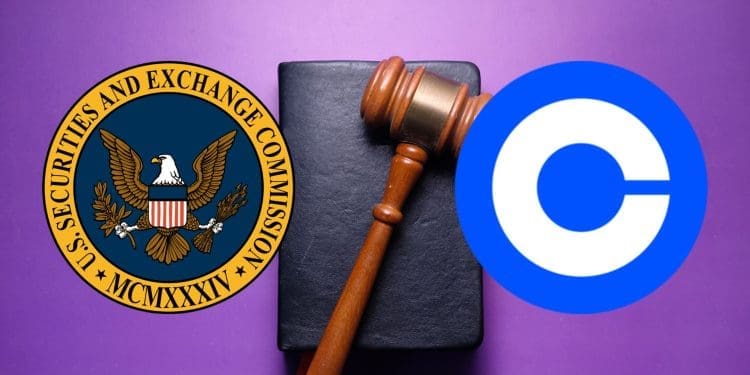- Coinbase has requested the United States District Court to scrutinize a specific “controlling question” raised by the US Securities and Exchange Commission (SEC) in its ongoing lawsuit against the exchange
- The controlling question revolves around whether an investment contract requires something contractual, with Coinbase arguing it does and the SEC arguing it does not
- Coinbase claims that a reversal on this question would dispose of the SEC’s primary claims against the exchange, which account for most of the factual allegations in the complaint
Coinbase, a major cryptocurrency exchange, has filed a request for an interlocutory appeal in its ongoing legal battle with the US Securities and Exchange Commission (SEC). The appeal centers around a key legal question that could significantly impact the case.
Background of the Lawsuit
In June 2021, the SEC filed a lawsuit alleging that Coinbase was operating as an unregistered securities exchange by allowing users to trade digital assets that the SEC deems securities. This includes assets like Bitcoin, Ethereum, and others.
Coinbase tried to get the case dismissed but the motion was denied in March 2022. The judge ruled that the SEC’s case could move forward.
The ‘Controlling Question’
Now Coinbase is seeking an interlocutory appeal focused on what it calls the “controlling question” in the case.
Specifically, the question is whether an investment contract requires something contractual. Coinbase argues that a contract requires contractual obligations. But the SEC claims it does not.
This question goes to the heart of whether cryptocurrency transactions on Coinbase’s platform can be considered investment contracts or unregistered securities.
Why Coinbase Is Appealing Now
Coinbase argues this appeal is urgent because resolving this key question could significantly impact the case moving forward.
If the appeals court sides with Coinbase, it could invalidate the core of the SEC’s case. That’s because the SEC claims the crypto transactions are investment contracts despite no contractual obligations.
Coinbase says this appeal is critical not just for its business but for the wider crypto industry. The company aims to fight back against regulatory overreach.
What Happens Next
Coinbase filed for the appeal just 17 days after the motion to dismiss failed. Now the court will decide whether to allow the early, interlocutory appeal.
If approved, the appeals court will hear arguments on this narrow “controlling question” related to the definition of an investment contract. Its decision could then set an important precedent.
The high stakes explain why Coinbase is pushing for quick resolution on appeal. But the timeline remains uncertain as the case proceeds.














